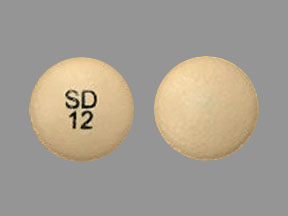Austedo Disease Interactions
There are 5 disease interactions with Austedo (deutetrabenazine).
Deutetrabenazine (applies to Austedo) depression
Major Potential Hazard, Moderate plausibility.
The use of deutetrabenazine is contraindicated in patients with Huntington's disease who are suicidal, or have untreated or uncontrolled depression. Deutetrabenazine can increase the risk of depression and suicidal thoughts and behavior in these patients. Particular caution should be exercised in treating patients with a history of depression or prior suicide attempts or ideation.
Deutetrabenazine (applies to Austedo) hepatic dysfunction
Major Potential Hazard, Moderate plausibility. Applicable conditions: Liver Disease
The use of deutetrabenazine is contraindicated in patients with hepatic impairment. The effect of hepatic impairment on the pharmacokinetics of deutetrabenazine and its primary metabolites has not been studied; however, in a clinical study conducted with a closely related VMAT2 inhibitor, there was a large increase in exposure to this drug and its active metabolites in patients with hepatic impairment.
Deutetrabenazine (applies to Austedo) QT prolongation
Major Potential Hazard, Moderate plausibility. Applicable conditions: Arrhythmias
The use of deutetrabenazine should be avoided in patients with congenital long QT syndrome and in patients with a history of cardiac arrhythmias.
Deutetrabenazine (applies to Austedo) NMS
Moderate Potential Hazard, Moderate plausibility. Applicable conditions: Neuroleptic Malignant Syndrome
Neuroleptic Malignant Syndrome (NMS) has been reported in association with drugs that reduce dopaminergic transmission such as, deutetrabenazine. Deutetrabenazine should be used with caution in patients presenting similar signs and symptoms of NMS. Clinicians should be alerted to the signs and symptoms associated with NMS. Recurrence of NMS has been reported with resumption of drug therapy. If treatment with deutetrabenazine is needed after recovery from NMS, patients should be monitored for signs of recurrence.
VMAT2 inhibitors (applies to Austedo) parkinson
Moderate Potential Hazard, Moderate plausibility. Applicable conditions: Parkinsonism
The use of vesicular monoamine transporter 2 (VMAT2) inhibitor, such as valbenazine and deutetrabenazine may cause parkinsonism in patients with tardive dyskinesia. These agents should be used with caution in patients with parkinson disease or those presenting with parkinson-like symptoms such as, falls, gait disturbances, tremor, drooling and hypokinesia. It is recommended to reduce the dose or to discontinue treatment in patients who develop clinically significant parkinson-like signs or symptoms while on treatment with these agents.
Switch to professional interaction data
Austedo drug interactions
There are 447 drug interactions with Austedo (deutetrabenazine).
Austedo alcohol/food interactions
There is 1 alcohol/food interaction with Austedo (deutetrabenazine).
More about Austedo (deutetrabenazine)
- Austedo consumer information
- Check interactions
- Compare alternatives
- Pricing & coupons
- Reviews (12)
- Drug images
- Side effects
- Dosage information
- Patient tips
- During pregnancy
- FDA approval history
- Drug class: VMAT2 inhibitors
- En español
Related treatment guides
Drug Interaction Classification
| Highly clinically significant. Avoid combinations; the risk of the interaction outweighs the benefit. | |
| Moderately clinically significant. Usually avoid combinations; use it only under special circumstances. | |
| Minimally clinically significant. Minimize risk; assess risk and consider an alternative drug, take steps to circumvent the interaction risk and/or institute a monitoring plan. | |
| No interaction information available. |
Further information
Always consult your healthcare provider to ensure the information displayed on this page applies to your personal circumstances.


